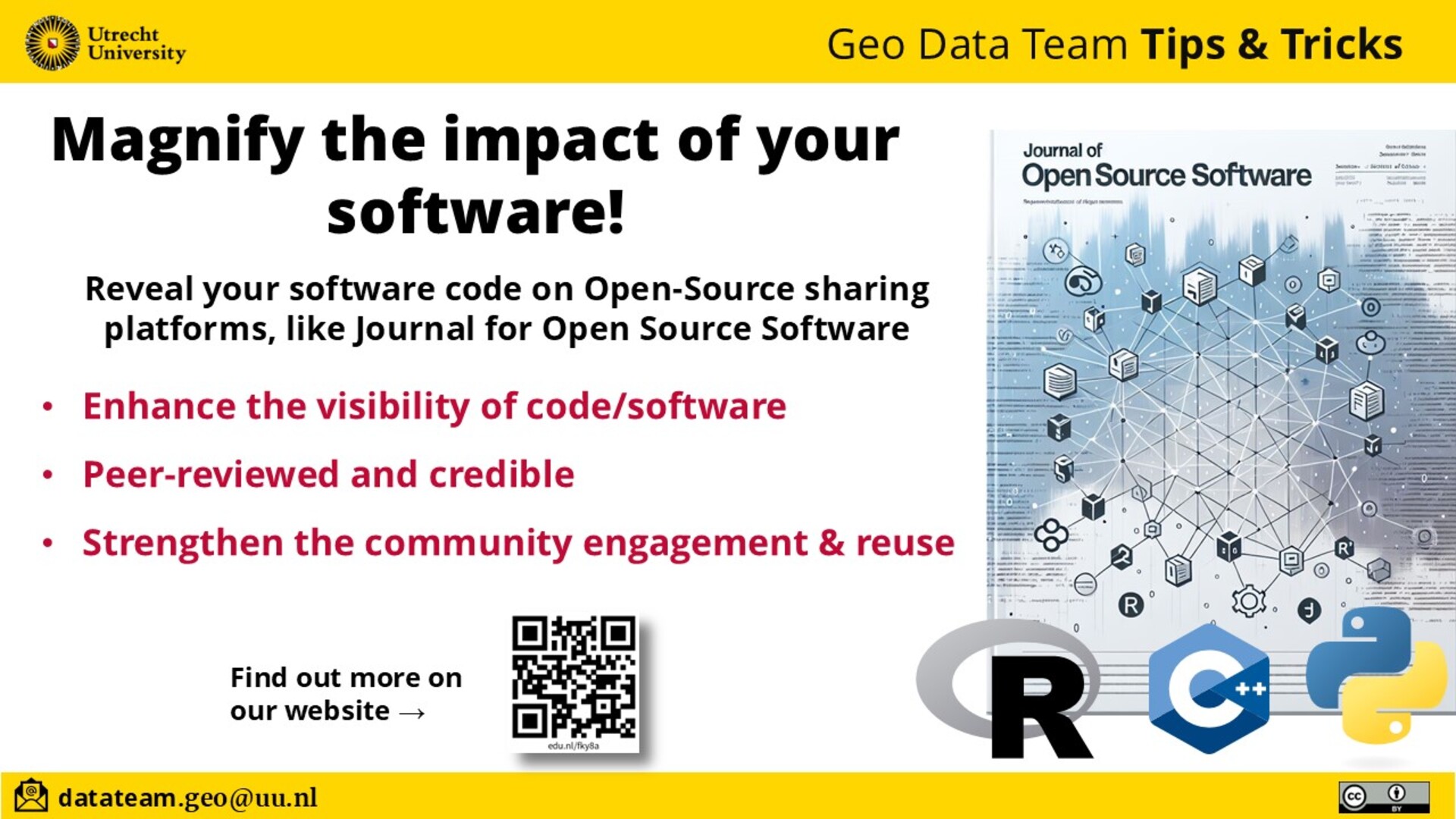Journal of Open-Source Software
Expand the impact of your software
In today’s rapidly evolving digital landscape, the role of research software is becoming increasingly critical to scientific discovery and innovation. As researchers harness the power of code to analyze data, model complex systems, and visualize results, the importance of making this software accessible to the wider community cannot be overstated.
Traditionally, software development has not received the same academic recognition as written publications. Making your research software as a citable contribution, helping you to get the formal academic credit you deserve. The Journal of Open Source Software (JOSS) offers a unique opportunity for researchers to publish their software as first-class research outputs. By publishing research software on JOSS, you do not only enhance the visibility and impact of their work but also contribute to a collective knowledge base that empowers others to build upon your findings.
JOSS
The JOSS is an online open access and collaborative journal where researchers can share the software they’ve written, providing an explanation of what the software does, and get it peer reviewed.
JOSS welcomes submissions in a wide range of programming languages and research domains. Whether your software is used in data science, machine learning, physics, biology, or any other field, it has a place in the journal.
It also serves as an excellent archive of research software you can look through to help you with your research and find information on how the software will work for you.
Key Features of JOSS :
- Streamlined Peer-Reviewing Process: The journal uses a transparent and collaborative peer-reviewing process that is conducted openly through GitHub. The reviewers evaluate the software’s reusability, documentation, licensing, and suitability for its intended use cases, ensuring that the published software meets the community standards for quality and reusability. In this process, the reviewer provides the researchers with feedback to enhance the usability and robustness of their software, increasing its value to the scientific community.
- Assignment of Digital Object Identifiers (DOI): Each software submission that is accepted and published in JOSS is assigned a Digital Object Identifier (DOI), which provides a permanent, citable link to the software
- Fully Open Access: As an open-access journal, JOSS publishes all scientific software free of charge, ensuring that both the software and the accompanying article are available without any barriers.
- Short Communication Format: Articles are concise, typically not more than 1000 words, focusing on the software’s purpose, functionality, and impact rather than extensive methodological details.
- Community Engagement: The journal encourages community involvement through user feedback and contributions, enhancing the software’s development and usability. If you have relevant software development skills and domain expertise, you can even apply to become a reviewer for JOSS.
- Promotion of Best Practices: The journal advocates for best practices in software development, including documentation, testing, and user support, to improve software quality in research.


